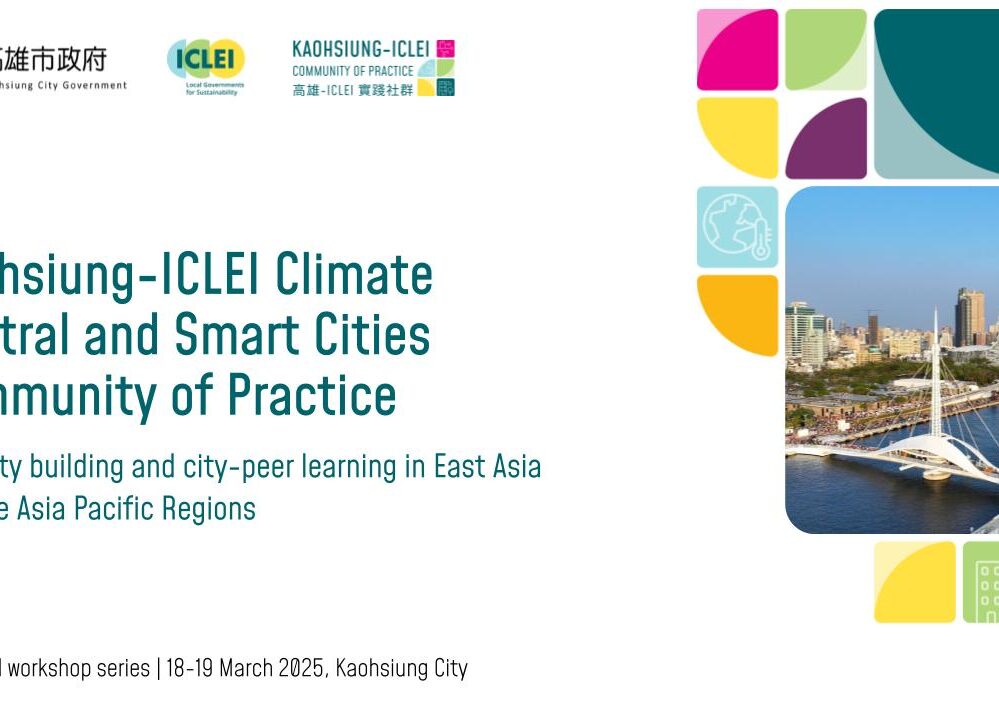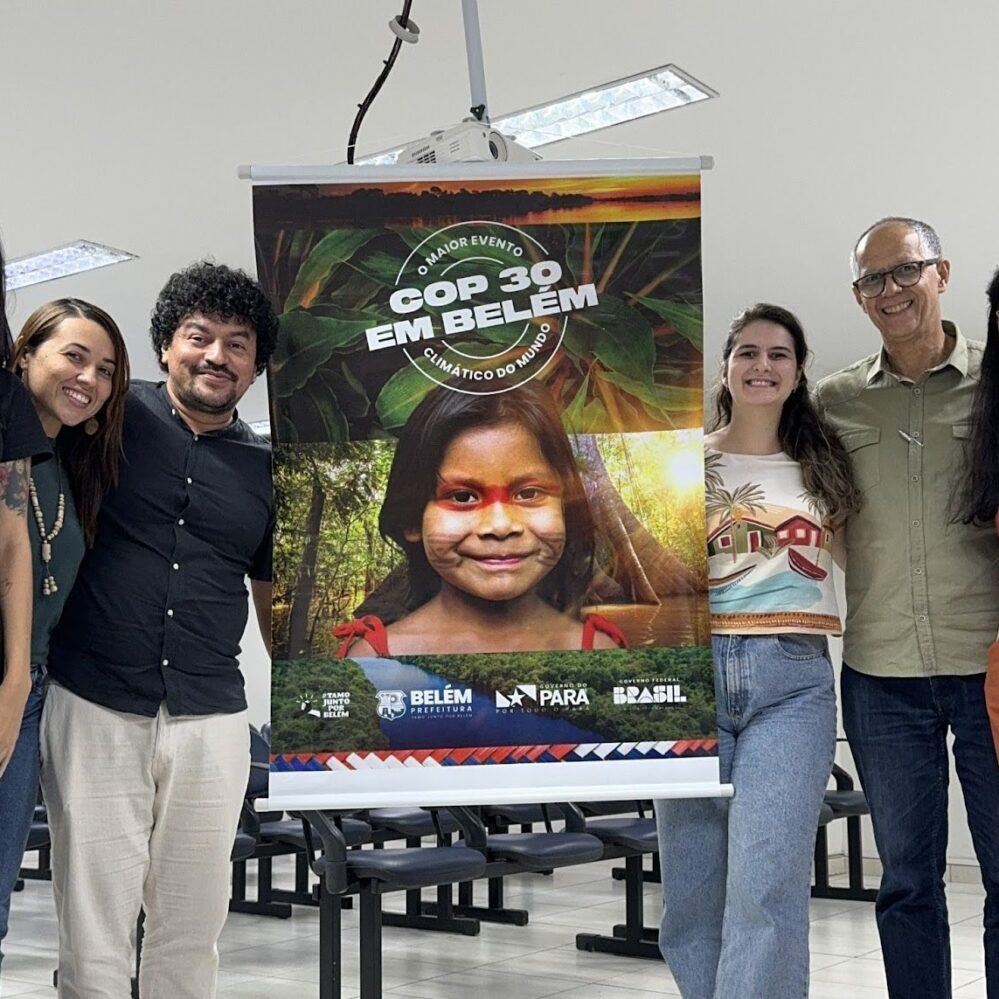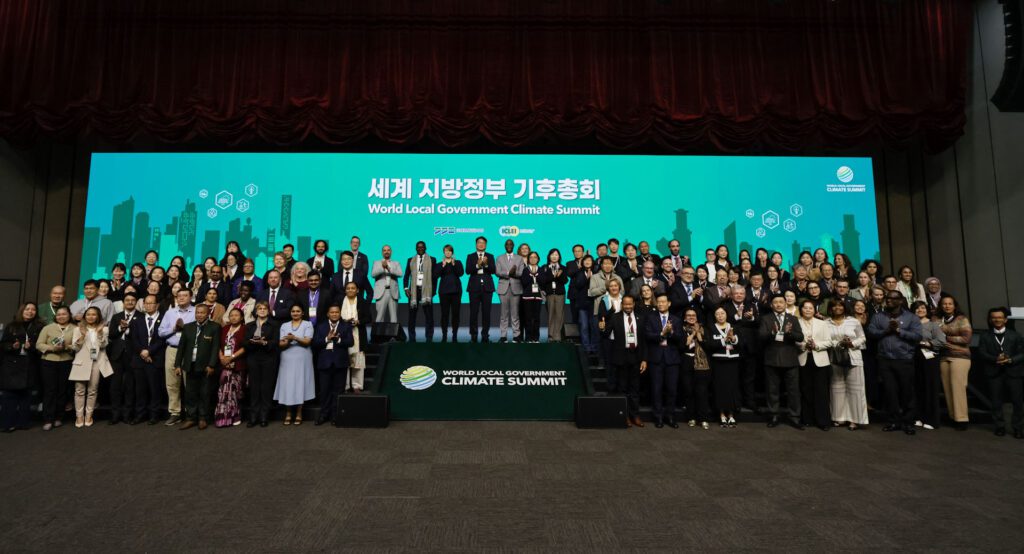
In a critical moment for multilevel climate diplomacy, over 80 local and regional governments from 29 countries gathered in Goyang City, Republic of Korea, for a series of high-level meetings that advanced their leadership in the global climate effort. From 14 to 16 April, ICLEI – Local Governments for Sustainability convened its Global Executive Committee (GexCom) meeting alongside the World Local Government Climate Summit, where local and regional leaders endorsed a powerful joint declaration to be presented at COP30 in Belém later this year.
The Summit concluded with over 1,500 participants from 44 countries, including 30 mayors and senior officials, as well as 11 deputy mayors. Together, they called for faster climate action, stronger access to finance, and the full recognition of local and regional governments as climate actors in their own right.
The Summit also marked a milestone in local government diplomacy, with the Joint Declaration committing to carbon neutrality by mid-century, inclusive governance, and climate resilience through nature-based solutions and science-based policies. The declaration will serve as a key contribution to the multilateral climate process and the upcoming negotiations in Brazil.
A democratic network for local leadership
The week began with the GexCom meeting on 14 April, where ICLEI’s global leadership came together to reflect on progress, shape priorities for the years ahead, and prepare for global milestones like COP30. As ICLEI’s highest decision-making body, the GexCom ensures that the network remains democratic, responsive, and driven by the needs and innovations of local and regional governments around the world.
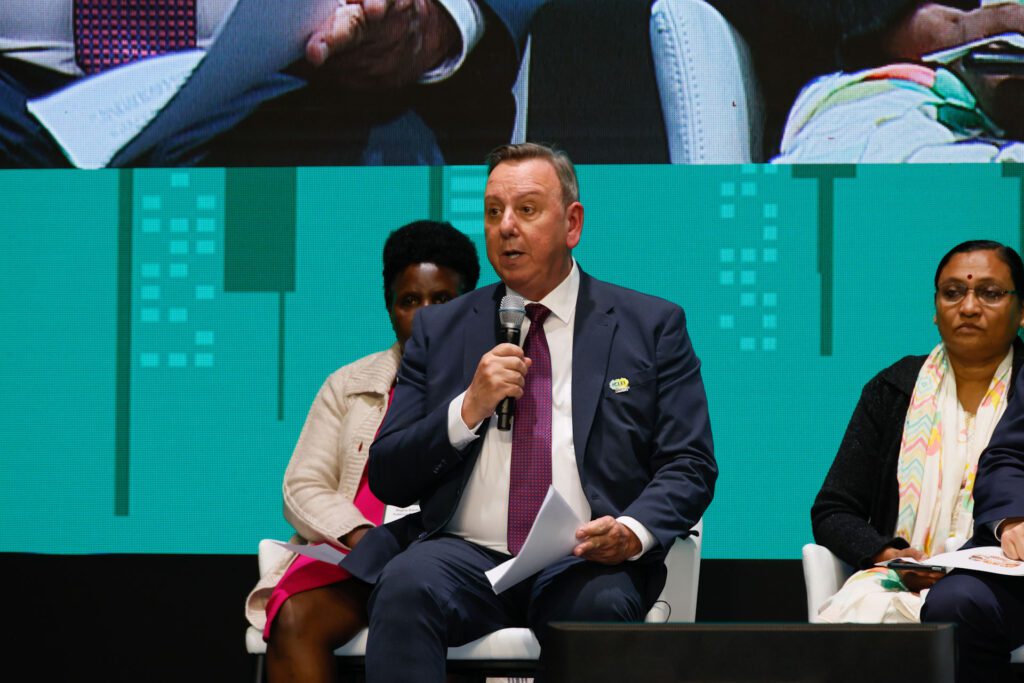
“Bringing our leadership together in person is always meaningful,” said ICLEI Secretary General Gino Van Begin. “It’s where strategy meets solidarity, where our members set the course for stronger climate action and deepen their collaboration across continents.”
From the frontlines to the world stage
The World Local Government Climate Summit, co-hosted by ICLEI and Gyeonggi Province from 15–16 April, carried the momentum forward. Themed Science-Based Green Transition for All, the Summit featured over a dozen sessions on topics such as green finance, citizen engagement, local renewable energy, and nature-positive development.
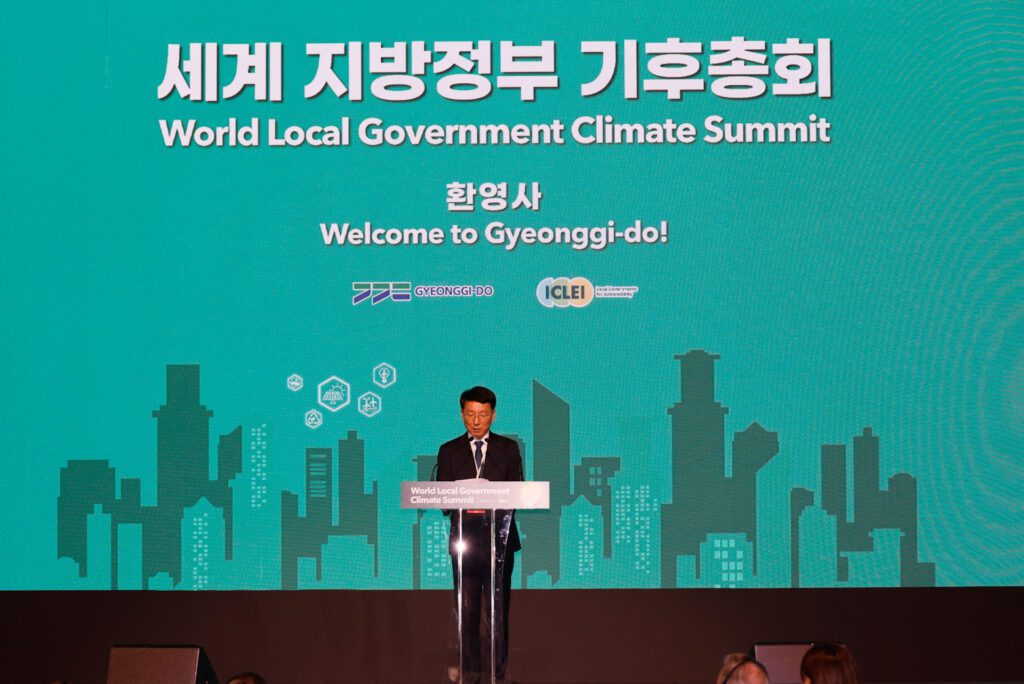
Seongjung Kim, First Vice Governor for Administrative Affairs for Gyeonggi Province opened the Summit by reminding participants that “Climate anomalies are not confined to one region; they are global challenges that require the collective efforts of the entire international community. Cooperation is essential, not only among nations but also among local and regional governments.”
“It has been 10 years since the Paris Agreement, and we are running out of time. Some national leaders are retreating from their commitments: We must do our part, and we must do it quickly,” said Katrin Stjernfeldt Jammeh, Mayor of Malmö, Sweden and ICLEI President, addressing the urgency and opportunity of local leadership. “When we meet in person, we have the opportunity to empower one another, share what is happening in our respective regions, and plan how to strengthen our network for the years ahead.”
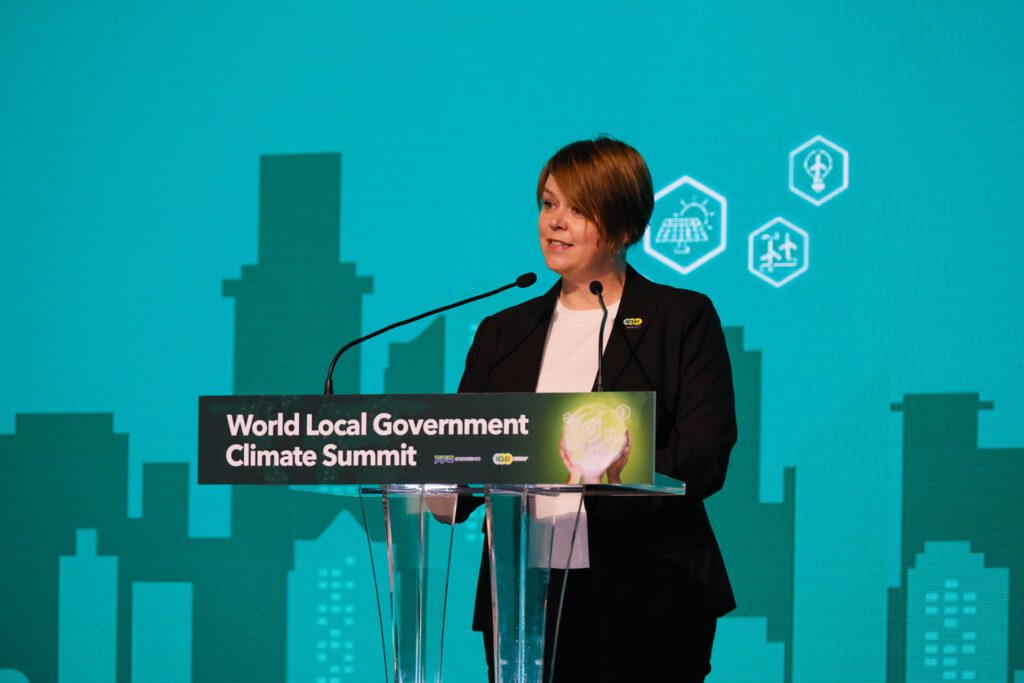
Other global voices echoed this urgency. Former U.S. Vice President Al Gore delivered a video message urging cities to harness the power of emissions data to take decisive action: “You can only manage what you measure. A lot of greenhouse gases are invisible, [hence] it’s difficult for policymakers to see the problem they’re trying to solve.” Despite such difficulties, he ended with a message of hope: “If you ever doubt that we are capable of mustering sufficient political will to act, please always remember: Political will is itself a renewable resource.”
Executive Secretary of the United Nations Framework Convention on Climate Change (UNFCCC) Simon Stiell highlighted the necessary timing of this event: “In 2025, as countries develop their national climate plans, integrating local leadership and solutions will be essential. Engagement platforms that bring climate conversations and consultations to cities, towns, and regions can empower local governments to shape national climate strategies that reflect their communities’ needs.”
Dr. Hakima El Haité, former climate champion for COP22 and President of the Pan-African Private Sector Alliance for a Just Climate Transition, reinforced the importance of empowering local authorities: “The transformation won’t come from COPs alone. It will come from the innovation and leadership of local authorities.”
One powerful testimony came from Brazil’s Marjorie Kauffmann, Secretary of State for Environment and Infrastructure of Rio Grande do Sul and ICLEI Vice President: “In May 2024, Rio Grande do Sul experienced the greatest climate tragedy in its history. In just ten days, the equivalent of three months of rain fell. The floods did not respect boundaries, neither geographic nor human. In 2025, Brazil will host the largest global event on the climate crisis: COP30, in Belém. This will be a decisive moment for us to advance in the implementation of the Paris Agreement and demonstrate, with tangible actions, the importance of subnational governments in meeting national climate goals.”
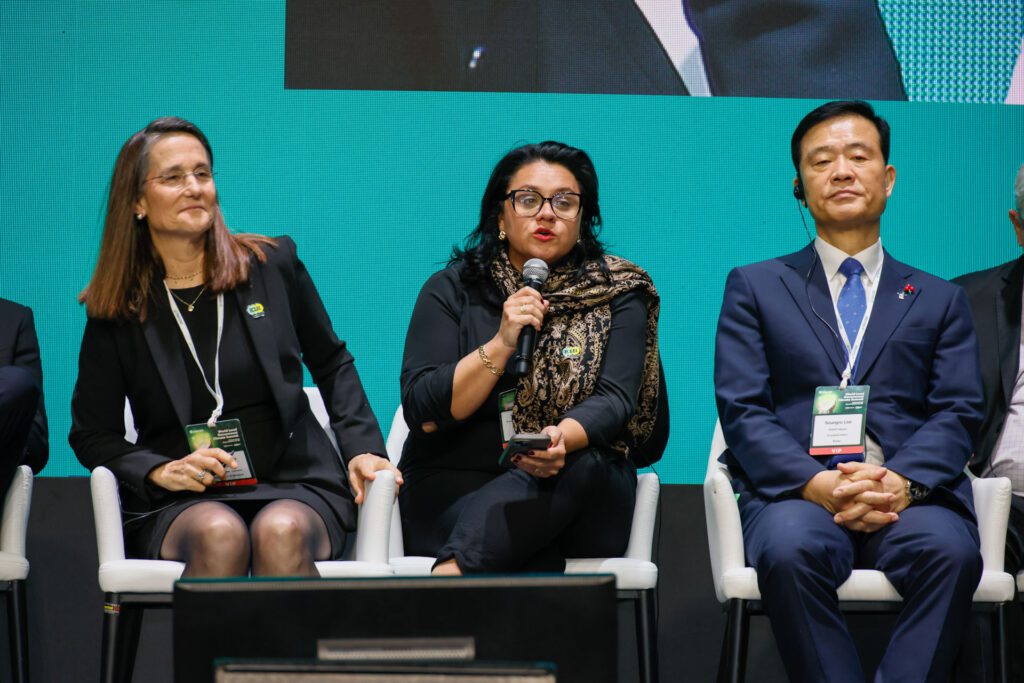
From Goyang to Belém
The Summit concluded with the adoption of the Joint Declaration on Local Governments and Climate Change, which calls for:
- Achieving carbon neutrality by mid-century
- Promoting inclusive and science-based local climate strategies
- Enhancing collaboration across all levels of government
- Recognizing the role of nature in climate solutions
- Empowering vulnerable communities and ensuring just transitions
This declaration will be submitted to the Presidency of COP30 and the UNFCCC through the Local Governments and Municipal Authorities (LGMA) constituency.
“This joint declaration is an important step forward in recognizing the vital role of local governments in the international community,” said Yeonhee Park, Director of ICLEI Korea. “It will serve as a catalyst for sustainable development through climate action”



